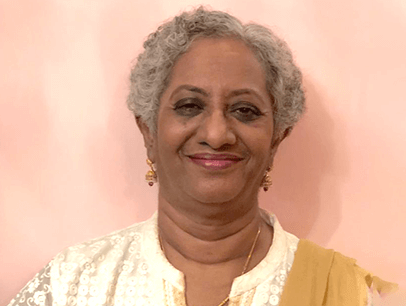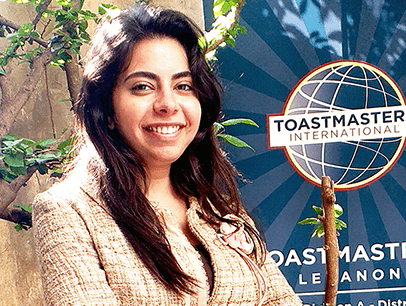
I get a little tickle in my throat, which grows to an irritation. I can’t will it to stop, so I turn away and cough into my elbow, the hygienic way we’ve been taught to cough or sneeze, even before the pandemic.
Wait, why did I do that? I’m sitting in front of a computer screen!
Since March 2020, I have been in enough virtual meetings that I shouldn’t be surprised at the persistence of such behaviors. But this is a Toastmasters meeting, and I feel like every gesture is critical.
I returned to Toastmasters in October 2019 after several years away. I have found that ingrained habits are hard to break, whether they’re simple courtesy (like coughing into your elbow) or the fundamentals of a good speech (like a strong intro). I instinctively scan the room while speaking and use expansive arm movements. I learned such habits during my 10-plus years of Toastmasters training.
The world changed in many ways in 2020, and we are all navigating the challenges. I found my return to Toastmasters to be similarly fraught—and also full of potential solutions.
Challenge #1: Pathways
Pathways was not around when I was last a member of Toastmasters. Initially, I resisted it. I was nostalgic for a manual with a glossy cover. I wanted to earn awards that contained words like “leader” and “advanced.” When I saw DL3 or PM2 (Pathways designations) next to someone’s name, I was unimpressed; it seemed to lack the authority of the old designations.
But then I managed to breeze through the first level of the Presentation Mastery path. As I advanced through the projects, I grew more impressed. It felt more comprehensive, more like a curriculum than the previous education program.
I selected Presentation Mastery as my first path very deliberately. Last year I began volunteering at a nature preserve near my home in Houston, Texas. I’m training to be a trail guide, and I want my communication to be as polished as that of the pros I watch leading hikes. Returning to Toastmasters was an obvious way to improve my communication and presentation skills.
When I earned the PM1 designation, I surprised myself with how accomplished I felt.
Each speech I gave in Level 1 related to my volunteer work. I spoke about the great horned owl in one meeting and genetically modified mosquitoes in another; I also took my club on a photographic tour of outdoor sculptures in the Birmingham, Alabama, civil rights district.
When I earned the PM1 designation (Presentation Mastery, Level 1 completion), I surprised myself with how accomplished I felt. I logged on to the Toastmasters website several times just to see the formal record of my achievement.
Challenge #2: The Small Screen
Of course, I can’t ignore the limitations of a virtual meeting. I don’t always know where on the screen to look in order to avoid the appearance of staring at my lap or at the wall beyond my desk. I don’t know how to modify hand gestures to integrate them into a virtual project. And it’s certainly a challenge to gauge the audience’s reaction to my speech.
One thing I really miss from the old days is walking to the lectern while the audience applauds. It got me ready to dive into my presentation, and no matter how well I did, the applause on the way back to my seat was comforting. There’s nothing online that can duplicate that.
A New Club
My new club, Pearland Toastmasters, helped me adapt. Until the coronavirus hit the U.S., the club met at a YMCA in Pearland, Texas, a small city south of Houston. If they were still meeting in person, it would be about a 20-minute drive for me, depending on traffic. Other clubs are closer to my home and meet at a less extreme hour than the 7 a.m. starting time, but I chose Pearland because I could see from the club’s website that it had a truly diverse membership in terms of ethnicity, culture, ability, and age.
I continue to adapt to the new environment and the new program. I have stopped resisting change. Speech by speech, role by role, I really do feel like a Toastmaster again.
Ruth Nasrullah is a freelance journalist based in Houston. She joined Toastmasters in 2006 and since then has belonged to several clubs in the greater Houston area. Visit ruthnasrullah.com to learn more about her and her writing.



 Previous
Previous
 Previous Article
Previous Article

